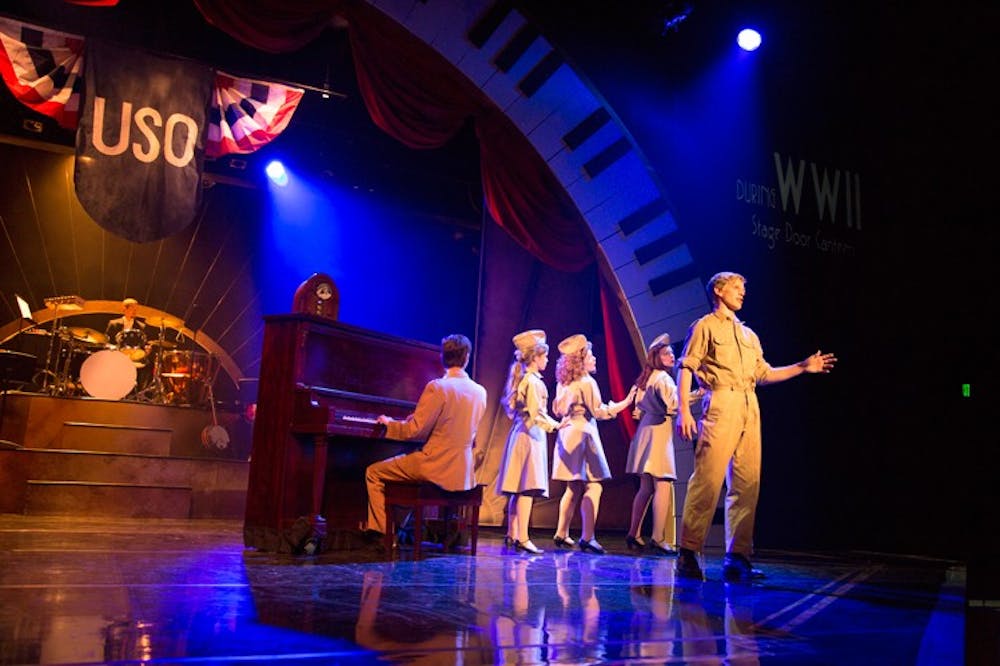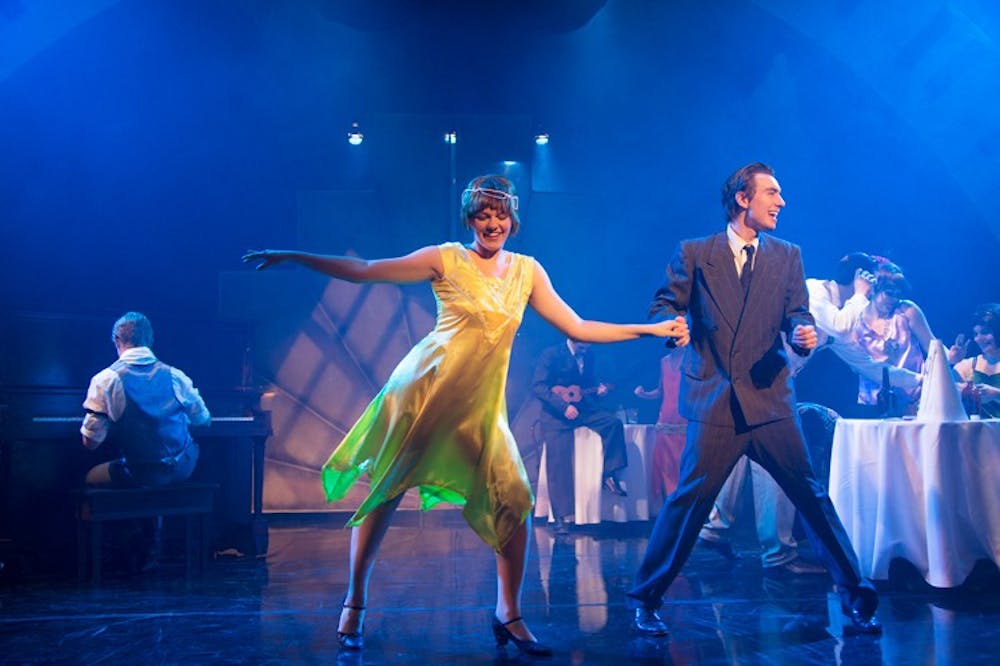By David Seaman | Echo

In America, we like our ideals. We like to express what we believe, especially through songs that speak to the heart and soul of the American dream.
What America has in spades is hope. That is present in songs of great American songwriter Irving Berlin, whose optimistic view of the USA peppers his songwriting. It is songs such as "Blue Skies," where "good luck came a-knocking at my door/Skies were gray but they're not gray anymore." Tunes such as "Count Your Blessings (Instead of Sheep)," where singing about having a small bankroll means remembering when you had none at all, and you fall asleep counting the blessings you have. This uplifting hope transcends time as well; in "Always," the days may not always be fair, but there is knowledge that "I'll be there, always."
These songs shape the mindset of Berlin, whose 64 tunes (out of an estimated 1,500 he wrote) makes up "I Love a Piano," Taylor Theatre's last production of the year.
Berlin was a Russian Jew born in 1888 whose only memory of his homeland was watching his house burn to the ground. Escaping anti-Semitic riots from the Tsar's Cossack forces, his family secretly made its way to New York City. The change from Russian oppression to American freedom, where his religion was not a handicap and a person could go from rags to riches. In his long lifetime, Berlin churned out hundreds of pop songs, reams of sheet music and nearly 20 complete Broadway scores.
Berlin's ditties shape the narrative of the musical, written by the team of Ray Roderick and Michael Berkeley for the 2006 premiere of the production. Director of Theatre Tracy Manning is the artistic director and assistant professor of music Conor Angell is the music director for this impressive Taylor production.
The music and lyrics of Berlin's six-decade career evolve over time, from 1910 to the late 1950s. From Tin Pan Alley to the streets of the Depression, early 1940s dance floors to junkyards and theaters, the music ebbs and flows with each place over time.

The superbly talented cast is made up of suave men (freshman Ty Kinter, sophomores Sean Sele and Ben Klein and junior Carter Perry) and flirtatious ladies (freshman Jenna VanWeelden, junior Jessica Schulte and seniors Emma Helfgott and Haley Kurr). Each cast member keeps their same name and characteristics from the beginning but changes with the times, creating a loose but entertaining story arc.
Each person's story revolves around eponymous piano, a rustic reddish-brown instrument with a few bad keys but tremendous endurance and charm-sort of like America. The piano allows musicians to craft pop songs, and it constantly provides entertainment for people. From desperate workers to junkyard tramps, dance floor halls to military shows, the piano is there to create balance.
Revolving around the piano is a bevy of creative set pieces and scenes involving the cast. A humourous misunderstanding at a speakeasy has people running around desperate to hide their "hooch," while a dance competition has couples jitterbugging until they're exhausted. My favorite is a silent movie spectacle that has Klein showing off his Buster Keaton-like slapstick skills. As he transfers the piano from the 1920s to 1930s, a jazzy score and flashing lights create quite the amusing scene.

For all the scenes of happiness and hope, however, the score does not sentimentalize the joys of life. Songs like "Russian Lullaby" subtly reflect Berlin's upbringing. The most haunting of these is "Supper Time," originally about a wife's reaction to her husband's lynching, but here it describes a woman lamenting her husband's death after World War II. Berlin clearly sees the potential America can bring to people's lives, but he refuses to ignore the realities of suffering. This works well with the scenes set during the Depression and the war, adding poignancy to the overall production.
With a musical boasting showstoppers like "Anything You Can Do," "Puttin' on the Ritz" and "There's No Business Like Show Business," the set as a whole needs to be epic as well. And it is: a ring of red drapes and sparkly piano keys surround the stage, with a shiny black floor highlighting the piano in the center. An art deco background opens up to reveal a hand-picked, tuxedo-clad orchestra in the back, brilliantly complimenting the wide range of vocal talent in the cast. Strings, winds, brass, pianos, drums . . . all of the instruments reveal the bigness of Berlin's scores. The whole thing feels ultra-theatrical, making the Mitchell Theatre stage seem larger than life. It's glamorous but dusty, confident but worn, showing how America's past leads into an optimistic future.
You'll come out of "Piano" tapping your shoes to the enthusiasm the cast and band presented. Berlin's music shows the best America has to offer. Come and spend a few hours away from your worries and stresses.
And while the musical has a run time, its themes do not. As Berlin wrote in "Always," the days may not be fair, but someone will love you not for just an hour, a day or a year. But always.
"I Love a Piano" will run this Friday and May 1-2 at 7:30 p.m. and April 26 and May 3 at 2 p.m. in the Mitchell Theatre. This Saturday's scheduled April 25 presentation is sold out.
Tickets are $12 for adults, $10 for students and $8 for seniors and children 12 and up. Tickets are available at the Mitchell Theatre Box Office or by contacting the office at boxoffice@taylor.edu or 765-998-5289.





